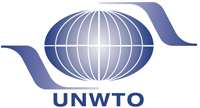
New UNWTO report helps cities manage impact of tourism (Espagne)
A new World Tourism Organization (UNWTO) report aims to help manage growing urban tourism flows and their impact on cities and residents. |
 |
New UNWTO report helps cities manage impact of tourism (Espagne)
A new World Tourism Organization (UNWTO) report aims to help manage growing urban tourism flows and their impact on cities and residents. |
Catégorie : Europe - Espagne - Économie du secteur
- Tendances, avis d'expert - Tourisme
Ceci est un communiqué de presse sélectionné par notre comité éditorial et mis en ligne gratuitement le 18-09-2018
‘Overtourism’? Understanding and managing urban tourism growth beyond perceptions’, was launched today during the 7th UNWTO Global Summit on Urban Tourism, in Seoul, Republic of Korea (16-19 September 2018).
The report examines how to manage tourism in urban destinations to the benefit of visitors and residents alike. It proposes eleven strategies and 68 measures to help understand and manage visitor growth. The report is the result of collaboration between UNWTO, the Centre of Expertise Leisure, Tourism & Hospitality (CELTH), Breda University of Applied Sciencesm and the European Tourism Futures Institute (ETFI) of NHL Stenden University of Applied sciences.
The recent growth of urban tourism requires the sector to ensure sustainable policies and practices that minimize adverse effects of tourism on the use of natural resources, infrastructure, mobility and congestion, as well as its socio-cultural impact. Increased reports of negative attitudes among local populations towards visitors, due to perceived overcrowding, noise and other issues, have led to the spread of terms such as ‘overtourism’ and ‘tourismphobia’ in the media.
“Governance is key. Addressing the challenges facing urban tourism today is a much more complex issue than is commonly recognized. We need to set a sustainable roadmap for urban tourism and place tourism in the wider urban agenda,” said UNWTO Secretary-General Zurab Pololikashvili. “We must also ensure local communities see and benefit from the positive aspects of tourism”, he added.
To better understand visitor management challenges in urban contexts, particularly the relationship between residents and visitors, the report includes an analysis of residents’ perceptions towards tourism in eight European cities – Amsterdam, Barcelona, Berlin, Copenhagen, Lisbon, Munich, Salzburg and Tallinn.
"There is no one-size-fits-all solution to deal with overtourism. Instead tourism needs to be part of a city-wide strategy for sustainable development", Dr. Ko Koens of the Centre of Expertise Leisure, Tourism & Hospitality (CELTH) and Breda University of Applied Sciences concludes. The report recommends a common strategic vision among all stakeholders involved, bringing residents and visitors together and adopting careful planning which respects the limits of capacity and the specificities of each destination. "The involvement and support of local residents is key in achieving sustainable tourism", Professor Albert Postma of CELTH and NHL Stenden University of Applied Sciences explains. "Building shared responsibility amongst stakeholders directly or indirectly involved in tourism development is a key for ensuring long-term sustainability", involved researcher Bernadett Papp concludes.
|
|




